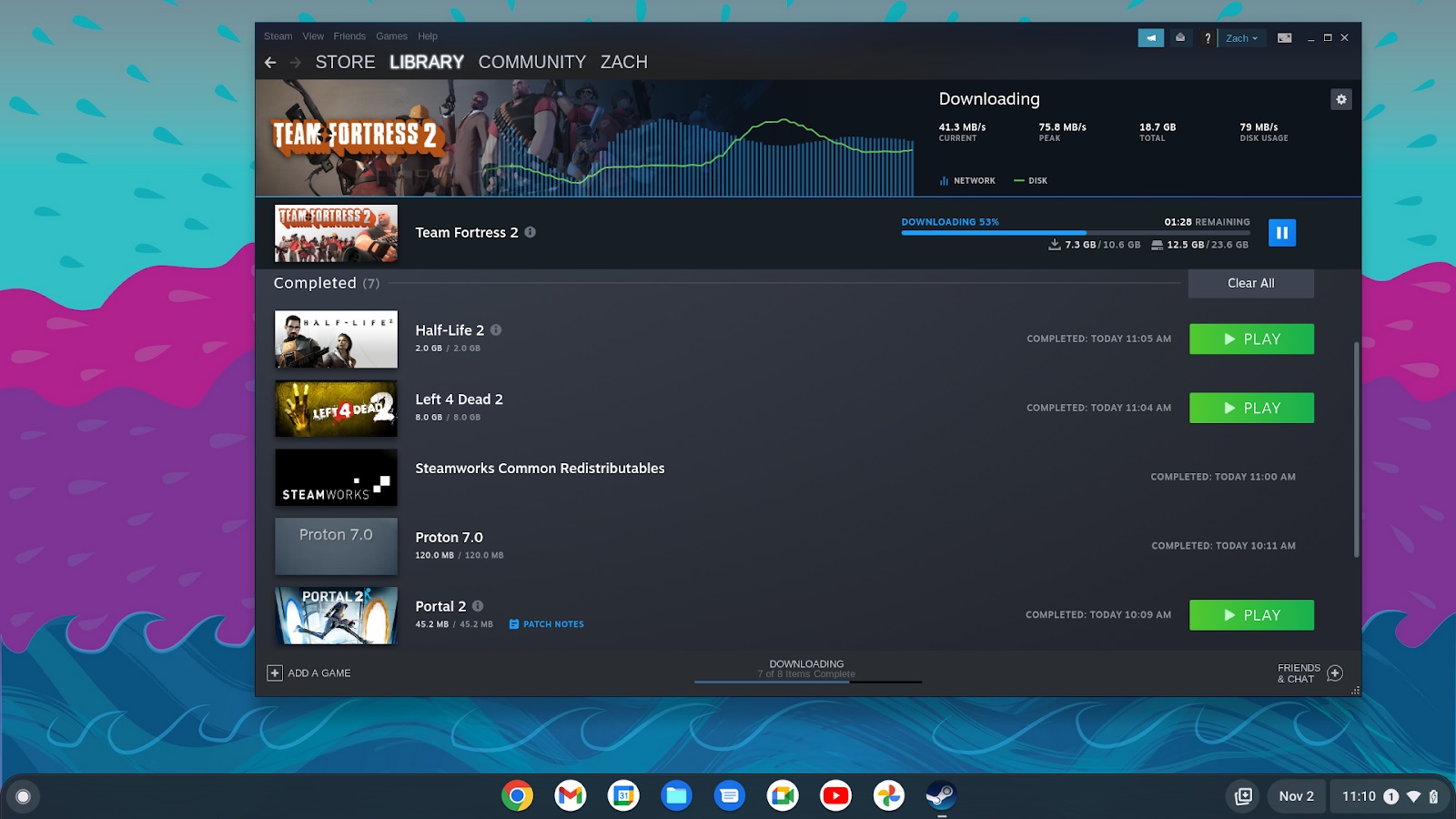Asus
Google and some of its Chromebook partners decided to try making “gaming Chromebooks” a thing late last year. These machines included some gaming laptop features like configurable RGB keyboards and high refresh rate screens, but because they still used integrated GPUs, they were meant mostly for use with streaming services like Nvidia’s GeForce Now and Microsoft’s Xbox Cloud Gaming.
But there were also apparently plans for some gaming Chromebooks with the power to play more games locally. Earlier this year, 9to5Google spotted developer comments earlier this year pointing to a Chromebook board (codenamed Hades) that would have included a dedicated GeForce RTX 4050 GPU like the one found in some Windows gaming notebooks. This board would have served as a foundation that multiple PC makers could have used to build Chromebooks.
But these models apparently won’t be seeing the light of day anytime soon. Developer comments spotted by About Chromebooks this week indicate that the Hades board (plus a couple of other Nvidia-equipped boards, Agah and Herobrine) has been canceled, which means that any laptops based on that board won’t be happening.
“Herobrine, Hades, and Agah are all cancelled,” the comment reads. “The infra (overlays, builders, etc) have already been shut down for them. Delete.”
This doesn’t mean that Chromebooks with dedicated GPUs will never happen—AMD and Intel make dedicated laptop GPUs as well, though they’re far less popular than Nvidia’s. But at least for now, it seems like someone within Google or at the PC companies has decided that Chromebooks with dedicated GPUs aren’t worth the effort.
Local gaming in ChromeOS is a heavy lift

Had they happened, these Chromebooks would have faced software compatibility challenges. Google had made progress in getting the Linux version of the Steam client running in Chrome OS. Because it’s a Linux operating system at its core, ChromeOS can run many Windows games thanks to the same Proton compatibility layer used by the Steam Deck (and available to desktop Linux OSes like Ubuntu).
But the additional restrictions on Linux apps running in ChromeOS meant that support was still spotty. As of November 2022, the anti-cheat software that many multiplayer games require still wasn’t working, and external monitors weren’t supported. Games running on 1440p and 4K displays were also apparently taking additional performance hits, even if they were running at lower resolutions. And workarounds were needed to make sure that enough storage was being allocated for games, especially ones that downloaded additional content post-install.
It’s not as though there is zero constituency for a Chromebook that can play games locally. Chromebooks are popular in schools, and young people buying their first gaming PCs could have had the option to stick with an operating system they’re used to.
But I can’t say I’m sad to see the idea go. These laptops would have combined all of the things that are already wrong with gaming laptops—mainly high temperatures, lack of repairability and upgradeability, and high costs relative to an entry-level gaming desktop—and they would have added the difficulty of playing Windows games on Linux, and of running Linux apps on ChromeOS. These sacrifices, the slumping PC market, and the added work of supporting Nvidia GPUs in ChromeOS may have prompted Google to kill the project.

